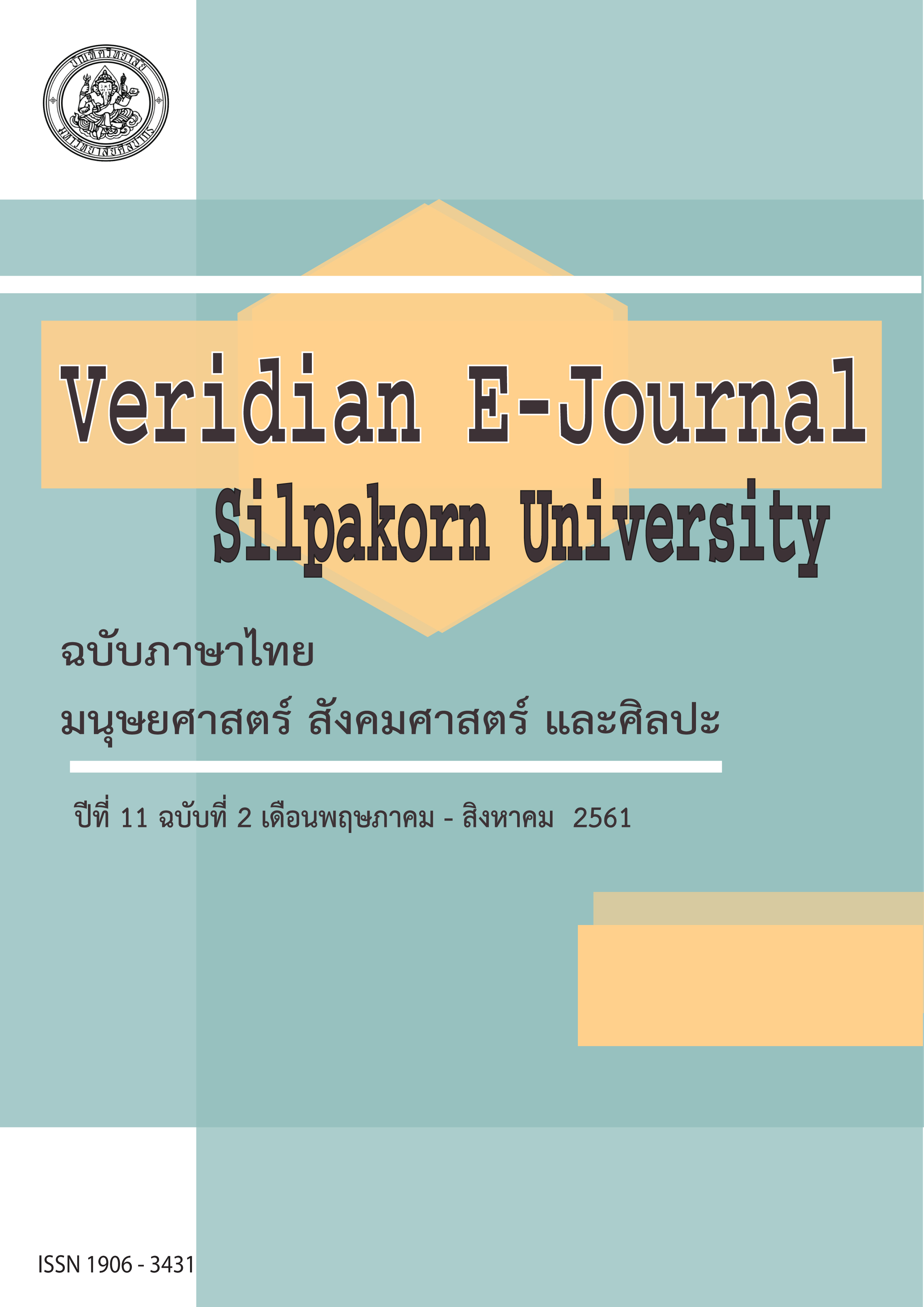ความจงรักภักดีของนักท่องเที่ยวในบริบทโซเซียลคอมเมิร์ซ (Tourist’s Loyalty in Social Commerce Context)
Main Article Content
Abstract
ปัจจุบันเทคโนโลยีได้เข้ามามีบทบาทต่อการใช้ชีวิตของผู้คน และส่งผลให้เกิดการเปลี่ยนรูปแบบการชีวิตและพฤติกรรมรูปแบบใหม่ที่ทำให้การดำเนินธุรกิจในทุกวันนี้ต้องปรับตัวเองเพื่อให้สามารถตอบสนองการให้บริการแก่ผู้บริโภคยุคใหม่ที่มีความรู้และสามารถเข้าถึงแหล่งข้อมูลสินค้าหรือบริการได้ง่ายและสะดวกรวดเร็วมากขึ้น ทำให้ผู้บริโภคมีข้อมูลสำหรับพิจารณาก่อนซื้อสินค้าหรือบริการ สำหรับในบริบทของโซเซียลคอมเมิร์ซ (social commerce: s-commerce) หรือพาณิชย์อิเล็กทรอนิกส์ผ่านเครือข่ายทางสังคม ซึ่งนำเทคโนโลยีเครือข่าย (social networking) และ เทคโนโลยีสื่อสังคม (social media) เข้ามาเพิ่มประสิทธิภาพในการติดต่อสื่อสารและการซื้อขายสินค้าและบริการทางออนไลน์ ทำให้ผู้บริโภคและธุรกิจกับผู้บริโภครายอื่น ๆ สามารถมีปฏิสัมพันธ์ร่วมกันภายในกลุ่มสังคมเครือข่าย ได้แก่การแลกเปลี่ยนความคิดเห็นเกี่ยวกับสินค้าและบริการ การให้คะแนนหรือข้อมูลย้อนกลับแก่ธุรกิจ ผ่านเว็บไซต์สื่อสังคมออนไลน์ เช่น เฟซบุ๊ก (Facebook)
อินสตาแกรม (Instagram) เป็นต้น หรือผ่านเว็บไซต์ของธุรกิจที่สนับสนุนการเชื่อมต่อกับเว็บไซต์สื่อสังคมออนไลน์ เพื่อให้ลูกค้าสามารถปฏิสัมพันธ์กับธุรกิจและลูกค้ารายอื่น ๆ แบบสองทางได้ (two-way communication)
การศึกษาความจงรักภักดีของนักท่องเที่ยวในบริบทโซเซียลคอมเมิร์ซ เป็นการนำเสนอแนวคิดเพื่อใช้สำหรับทำความเข้าใจพฤติกรรมของนักท่องเที่ยวซึ่งมีการใช้สื่อสังคมออนไลน์ร่วมกับเว็บไซต์ของผู้ให้บริการผลิตภัณฑ์ทางการท่องเที่ยว เช่น เว็บไซต์บริการจองห้องพัก จองโปรแกรมการท่องเที่ยว จองตั๋วโดยสาร บริการเช่ารถยนต์ เป็นต้น โดยบทความนี้มีวัตถุประสงค์ 2 ประการ คือ 1) เพื่อศึกษาทบทวนวรรณกรรมที่เกี่ยวข้องกับพื้นฐานความรู้ แนวคิด ทฤษฎี งานวิจัยที่เกี่ยวข้อง และ 2) เพื่อนำเสนอกรอบแนวคิดการศึกษาความจงรักภักดีของนักท่องเที่ยวในบริบทโซเซียลคอมเมิร์ซ ซึ่งจะเป็นแนวทางให้แก่อุตสาหกรรมการท่องเที่ยวนำไปปรับปรุงกลยุทธ์ที่สามารถตอบสนองการบริการแก่นักท่องเที่ยว และทำให้นักท่องเที่ยวเกิดความพึงพอใจ และเกิดความสัมพันธ์ที่ดีกับธุรกิจ
Today, technology plays an important role in people’s life and affects changes in their new life styles and behaviors that make businesses in nowadays have to adjust themselves to the service responses toward the new generation of consumers who are knowledgeable and being able to access the sources of goods and services more easily and conveniently. Technology helps consumers get information to consider before they decide to buy goods and services. For social commerce (s-commerce) or electronic commerce (e-commerce) context through social network that brings the social network and social media network to increase potentials of communication as well as online transactions of goods and services which cause consumers and businesses with other consumers to be able to mutually interact within the social network groups such as discussing about goods and services, scoring or giving feedback for a business through social media websites like Facebook, Instagram, etc., or through the business websites of the businesses which support the connection of online social media websites to let customers be able to have interaction with other businesses and customers by two-way communication.
The study of tourist’s loyalty in social commerce context is about to conceive the behaviors of tourists who use online social media together with the websites of tourism products’service providers such as websites for various reservation; residents, tourism programs, tickets, car rental, etc., The purposes of this study are 1) to review the related literatures with knowledge base, concept, theory, ect., and 2) to propose the conceptual framework of tourist’s loyalty in social commerce context to make better understanding about the tourists’ behaviors under the social commerce context. This will become the guidance to the tourism industry to improve the strategies capable to respond the needs of tourists’ services and satisfy the tourists, as well as to create good relationships with the businesses.

